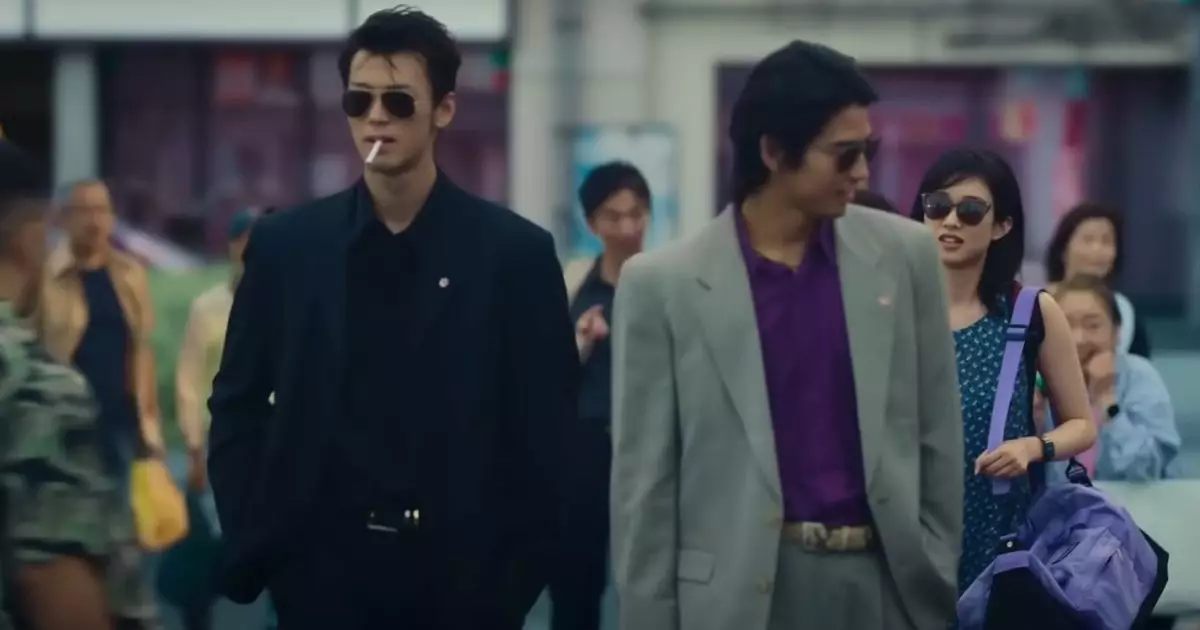With the upcoming release of Amazon’s adaptation of “Like A Dragon: Yakuza,” anticipation is palpable. As a long-time fan of the Yakuza franchise, my feelings towards the new series are a complicated mix of skepticism and cautious hope. The franchise is known for its intricate storytelling, complex characters, and an almost surreal blend of humor and drama. With the trailer now available, it’s essential to dissect what it suggests about the show’s tone, themes, and fidelity to the source material.
The tone depicted in the trailer presents a stark contrast to the often whimsical and over-the-top scenarios that characterize the video games. It steers away from the traditionally goofy elements that fans have come to love — a strategic decision, perhaps, aimed at attracting a broader audience. An approach leaning toward seriousness might resonate better with viewers unfamiliar with the outlandish antics of Kazuma Kiryu and his companions. However, will this tonal shift lead to an emotionally rich narrative, or will it risk losing the unique charm that has defined the franchise?
The absence of the silly side missions and quirky characters — like an informant dubbed The Florist of Tsai or racing miniature cars — suggests a more grounded narrative. While this may signal a shift in focus towards the serious and more dramatic aspects of the storyline, it raises questions about whether the series can retain the essence of what made Yakuza so distinct. Many fans anticipate that life in Kamurocho should include the ludicrous alongside the legitimate, contributing to the authenticity of the world.
The narrative outlined in the official synopsis introduces an intriguing dual timeline, allowing viewers to experience events from both 1995 and 2005. This nonlinear approach has potential; the burgeoning friendships and bitter betrayals outlined in the plot could lead to profound character development. However, the real challenge lies in how well the series will show the evolution of these relationships across timelines. While Kiryu’s aspirations to save his friends provide ample room for exploration, the question remains: can it effectively traverse the complexities of these multidimensional characters within the limited timeframe of a television series?
The journey of Kiryu from a naïve youth to a hardened adult, combined with his loyalty to friends like Nishiki and Yumi, promises a rich tapestry of storytelling. Kiryu’s conflict between his moral compass and the unforgiving world of the Yakuza could lead to engaging dilemmas, but does the series possess the depth needed to explore these themes fully?
The crux of the Yakuza series often lies within its human stories — some heartfelt, others absurd. From poignant moments of emotional discovery to side quests that delve deep into the idiosyncrasies of everyday life, the franchise combines serious storytelling with unexpected humor. While the trailer suggests a purely serious storyline, one cannot help but wonder if the series will touch upon these deeper human elements that fans hold dear.
Moreover, how will the series depict Kiryu’s related themes of redemption, loyalty, and friendship? The video games often feature unlikely friendships amidst chaos. The trailer does glance at Kiryu’s return to Kamurocho out of a sense of duty, but will it delve deeper into themes of forgiveness and understanding?
As the narrative hints at high-stakes confrontations within Kamurocho, I’m left contemplating how the series might reach its climax. The trailer has assurances of significant set pieces: intense fight sequences, vast interpersonal conflict, and dramatic showdowns. Fans are curious about whether the series will include iconic scenes from the games, particularly the familiar trope of an explosive climax that leaves Kamurocho transformed.
As much as I enjoy the rich world of Yakuza, I wonder if the series will ultimately fall into predictable patterns. Will viewers witness the ultimate showdown at Millennium Tower followed by the obligatory reset of Kiryu’s narrative arc? Or will the adaptation manage to forge a new path within an established universe, perhaps leaving room for growth and continuity in future seasons?
While the Amazon adaptation of “Like A Dragon: Yakuza” brings a sense of curiosity and speculative excitement, the balancing act of embracing the franchise’s legacy while forging a new narrative remains a daunting prospect. Only time will tell if the series can successfully transform the wild world of Yakuza into a cohesive and compelling TV experience.


Leave a Reply